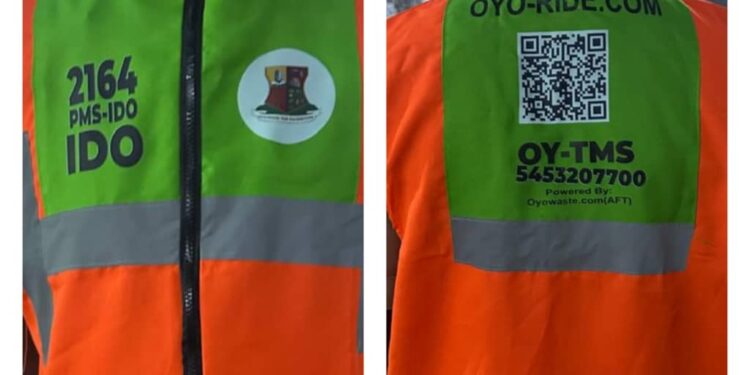The Oyo State Government has escalated its enforcement of QR code-embedded jackets for commercial motorcycle operators, threatening prosecution and operational bans for riders who fail to display the mandatory identification system.
Adekoya Adesagba, Chairman of the Oyo State Road Traffic Management Authority (OYRTMA), announced in Ibadan that authorities will pursue legal action against any Okada operator caught without the state-approved QR code jackets. The enhanced enforcement comes as criminal activities involving unregistered motorcycle riders continue to plague communities across the state.
The QR code system has proven its security value in recent incidents. Adesagba revealed that alert residents successfully helped authorities foil a kidnapping attempt on the UI-Agbowo axis by reporting suspicious riders operating without the required identification jackets. This incident demonstrates how the QR code verification system empowers citizens to identify legitimate operators and report potential security threats.
Criminal exploitation of unregistered motorcycles has reached alarming levels, prompting the government’s hardline stance. Armed robbers using unmarked motorcycles recently struck at Bodija Market, making off with a trader’s daily earnings, while another fraudulent operator robbed a passenger in the Challenge area. These incidents highlight how criminals have exploited gaps in the registration system to carry out illegal activities.
The QR code technology offers comprehensive security benefits that extend beyond basic identification. Passengers can perform real-time verification of rider credentials through simple code scanning, while emergency tracking capabilities enable rapid response during security incidents. The system also builds passenger confidence by ensuring operator accountability and creating transparent verification processes.
Enforcement operations will intensify dramatically, with OYRTMA conducting daily raids across all local government areas. Non-compliant motorcycles face immediate impoundment, while operators risk hefty fines and criminal prosecution. The government has issued clear warnings that defaulting riders will face permanent bans from operating on state roads, effectively terminating their commercial activities.
High-level government support underscores the policy’s importance. The enforcement directive receives backing from the Governor’s office through Senior Special Assistant on ICT and E-Governance, Adebayo Akande, demonstrating the administration’s commitment to comprehensive implementation of the QR code registration system.
The QR code requirement forms part of the broader Oyo State Residents’ Registration Scheme launched in November 2023, covering both Okada and tricycle operators. Despite initial government provisions of free identification jackets to encourage voluntary compliance, participation rates have remained stubbornly low among commercial motorcycle operators.
Poor compliance has inadvertently created opportunities for criminal elements to exploit the commercial motorcycle sector. Adesagba noted that inadequate enforcement allowed unregistered operators to continue functioning, providing cover for criminal activities and undermining public safety efforts.
The QR code system represents a technological solution to longstanding regulatory challenges in the commercial motorcycle sector. Beyond crime prevention, the digital identification system enables better sector regulation, improves emergency response coordination, and establishes accountability frameworks that protect both operators and passengers.
State authorities plan to combine intensified enforcement with expanded public awareness campaigns. Officials recognize that successful QR code implementation requires both operator compliance and public participation in verifying rider credentials and reporting suspicious activities to appropriate authorities.
The shift from voluntary to mandatory compliance with serious legal consequences marks a pivotal moment in Oyo State’s approach to commercial motorcycle regulation. This transformation reflects growing government concern about security challenges and determination to restore public trust in Okada transportation services through technological innovation and strict enforcement measures.

















